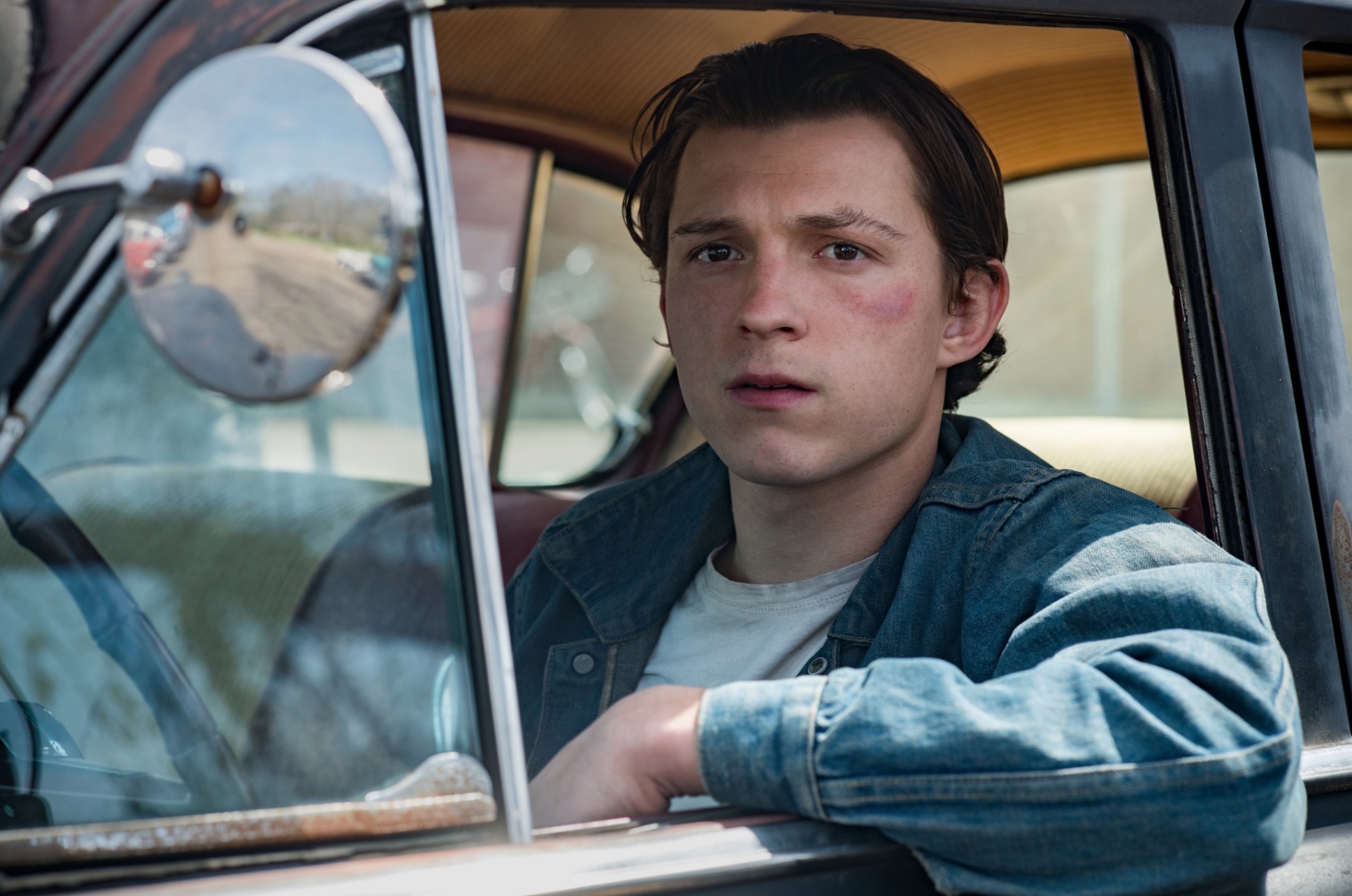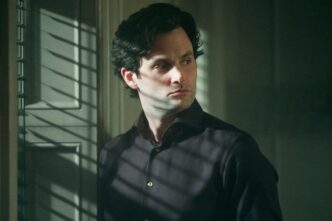The ugliness inherent in The Devil All The Time’s world is inescapable. It seeps into the rural heartland where the story takes place, infecting all characters, warping their minds and twisting their hopes, robbing them of compassion and sincerity. Adapted from Donald Ray Pollock’s novel of the same name, it is a tale of relentless suffering, predicated on the shoulders of young Arvin (Tom Holland), who is perhaps the one person who can break the cycle of violence, but is just as predisposed to perpetuating it.
When Willard (Bill Skarsgard) comes home from World War II, he meets Charlotte, who’s a waitress at a diner. They soon get married and have a son, Arvin; but by the time Arvin is nine years old, Charlotte falls gravely ill. A deeply religious man, Willard sinks to terrible depths as he prays for his wife to be saved. By the end of it all, Arvin finds himself alone, answering a policeman’s (Sebastian Stan) questions and being sent off to live with his grandmother in West Virginia.
Arvin grows up to be a reticent boy who’s fiercely protective of his adoptive sister, Lenora (Elizabeth Scanlen). Lenora has her own tragic backstory, with missing parents who are both presumed dead. Like her father, Roy, she is devoutly religious. When a new sleazy and vain preacher Preston Teagardin (Robert Pattinson) arrives at the town, things go from bad to worse for Lenora and Arvin.
There are also two other whole subplots of Lee Bodecker, who’s a corrupt cop, and his sister and brother-in-law, who have been killing hitchhiker’s for the better part of the last twenty years.
There’s a lot to like here in the film, starting with the bleak story. According to those who have read the book, the movie is noticeably less dark, which is saying something, because this is probably the most relentlessly tragic film I have seen all year. It zeroes in on religious fervor and how that can turn out badly for people, as well as how trauma is passed down through generations.
The acting is also solid all around, with Tom Holland in particular standing out as the lead.
Although Holland is best known as the current Spider-man, he displayed flashes of his acting prowess long ago in 2012’s The Impossible. Robert Pattinson’s Teagardin is also suitably portrayed, displaying the actor’s incredible range. There is a shrill thinness in Teagardin’s voice, and although he is a side character, he makes the role his own and delivers a deliciously vile performance.

Director Antonio Campos is mostly interested in exploring the world that these characters inhabit, but he isn’t as interested in delving into their lives. This is one of those stories that works decently as a film, but could have done better as a limited series. The story also feels like it is being stitched together, especially with the serial killer and cop sub-plots. There are some flashbacks in the first half that might confuse moviegoers, but thankfully things are much more straightforward in the second half (though there is a flashback between Arvin and Bodecker).
Looking back, one might feel like a sadistic voyeur when considering the way violence prefaces almost every major interaction in the film.
Still, it is well-crafted, and it is one of those exercises in filmmaking that doesn’t quite make it to the moon but at least lands in the trees. There’s the argument to be made that the film consciously excludes black Americans from the story, which is damning, especially when juxtaposed with current pop culture staples like Lovecraft Country, which is acutely centered around oppression and prejudice.
Still, if you’re in the mood for over two hours of misery, then The Devil All the Time can be your choice of poison. The foundation for a good story is there, and the performances make the runtime more than bearable.







